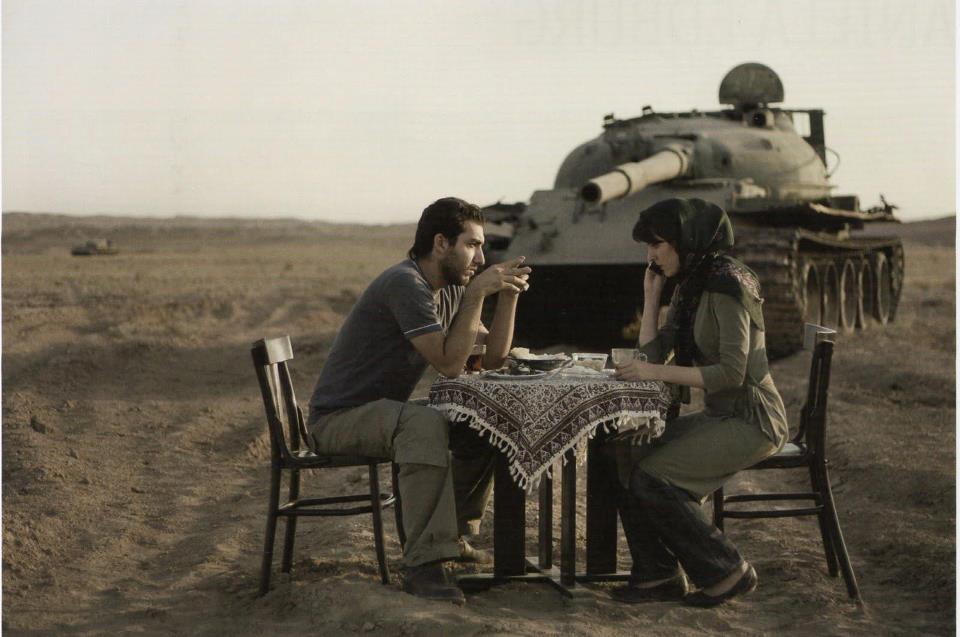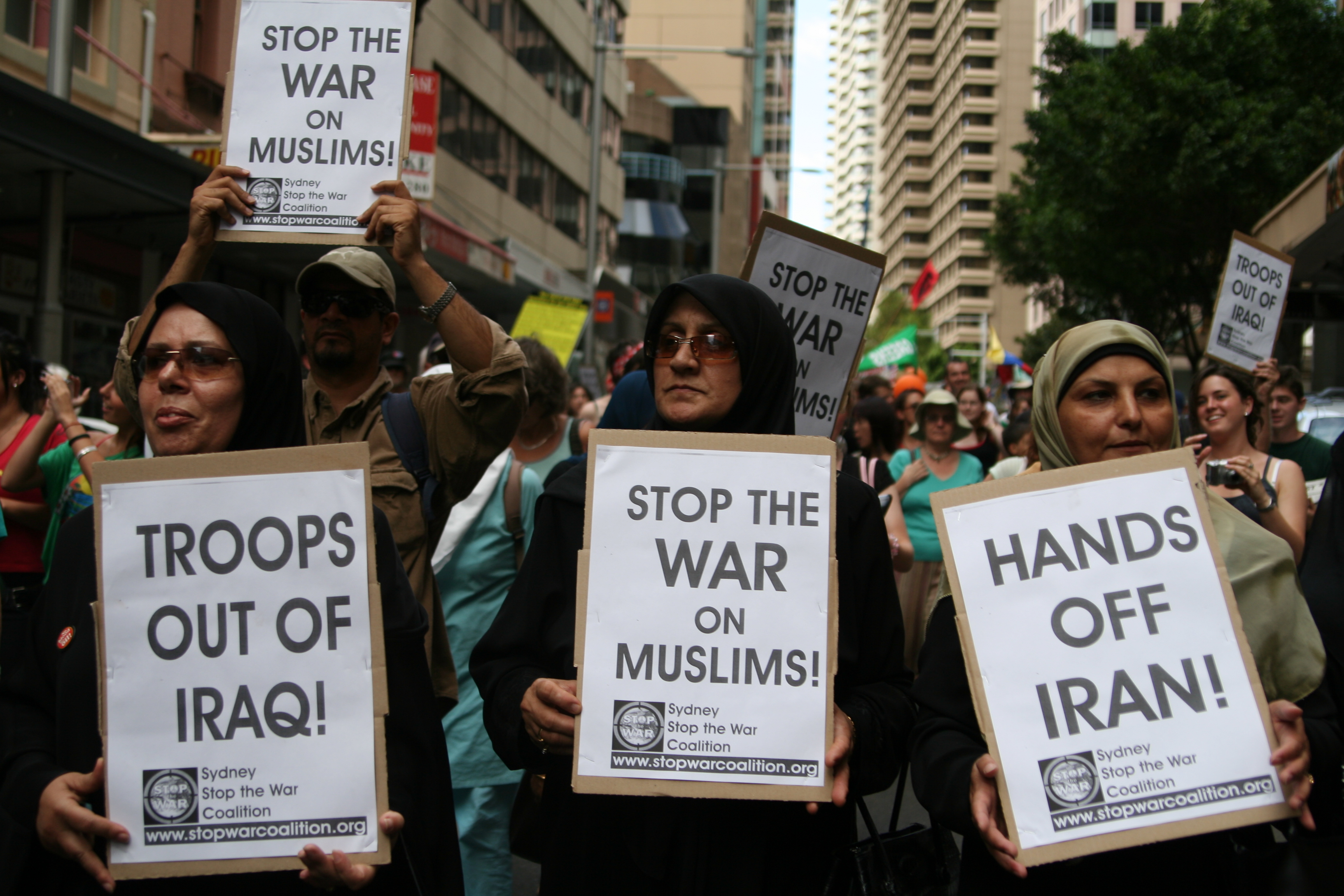
Nowruz this year is haunted by the shadow of the devastating conflict in Iraq, just as it was 10 years ago. As millions around the world in Iran, Afghanistan, Kurdistan, Central Asia, the Caucasus, Turkey, and elsewhere celebrate the advent of a New Year, the joy of this springtime celebration of rebirth is stalked by the specter of the horrific wounds inflicted upon the Iraqi people beginning exactly 10 years ago.
This was meant to be a Nowruz message of joy. But in light of the 10 year anniversary of the beginning of the US-led invasion of Iraq in 2003, it transformed into a plea for reflection on where we were and what has become of us, even as we look forward with the hope that Nowruz inspires in us each and every single year. By foregrounding my own experiences I don’t mean to make any comparison between the suffering the Iraqi people have endured in the last decade and the Islamophobic bullying many of us experienced abroad, but only to explore how this war has shaped each one of us in distinct ways based on our positionality and relationship to it. This is the story of an individual Iranian-American childhood shaped decisively by the experience of the War on Terror but constantly inspired by the bravery of the Iraqi people, framed through the reflective and hopeful attitudes Nowruz inspires in those of us who celebrate it.
For many Iranians, the US invasion of Iraq in 2003 is one of those historical events that is difficult to parse. Saddam Hussein invaded Iran in 1980, launching a war that killed nearly a million, the majority of them Iranians. Fresh off of a revolution that had rid Iran of the tyrannical reign of the US-backed Shah, the next eight years were a series of unending horrors that stalked our cities, killed our youth, and left broad swathes of our homeland in ruins. Saddam Hussein’s Iraq was the evil monster haunting a generation of Iranians’ nightmares.

But the suffering of the Iraqi people under his tyrannical fist was never completely forgotten in all of this, and the first Gulf War and the brutal sanctions regime that followed made it hard to do anything but pity the mortal enemies that had once menaced our collective Iranian dreamscape. Even as Iran staggered under the weight of its own US sanctions in the 1990s, the terrible suffering that the Iraqi people endured as healthcare, social services, and civil society slowly collapsed and an estimated 500,000 children died as malnutrition surged under the weight of international sanctions was never far from our minds, hearts, and prayers.
In Los Angeles, far removed from the wars that stalked the daughters and sons of the Iranian Revolution, this recent history was as confusing to me as the conditions that had led to my own father’s self-imposed exile from the homeland. Attending a predominantly white, Evangelical middle school in the suburbs allowed me to imagine a Middle Eastern geography not ruptured by wars and rising sectarianism, even back in 2003.
Indeed, in the months prior to the invasion of Iraq, I had become increasingly aware that the sense of solidarity and fear I felt for the Iraqi people was understood as sameness in the Islamophobic logic that had taken root among classmates and teachers. Even though other Iranians had tried to instill in me a deep feeling of difference and distinction from our Iraqi neighbors, white American Islamophobia had the ironic effect of making me feel little difference between myself and the “Arabs.”
The weeks leading up to the invasion were peppered with many incidents of bullying of which I only have vague memories anymore: being repeatedly called “Osama bin Laden” in the hallways, girls I barely knew spitting “Saddam Hussein” at me as I passed, and being regularly accused of treason in classroom discussions about the virtues of invading someone else’s country. The difference between an Iraqi and an Iranian held little weight in any of this, and my self-professed Christian faith was meaningless in the face of my apparent sympathies for the enemy cause. Perhaps this is the strangest part of discussing my own experiences of Islamophobic bullying growing up- as a child who believed passionately that he was a Christian, it was hard to understand how quickly I was racialized into a Muslim other in the eyes of my classmates.
The day the US carried out its “shock and awe” against the Iraqi people, committing atrocities from the air and striking terror into the hearts of millions, my classmates watched the television excitedly in the library and clapped intermittently. Inconsolable, I cried and promised myself I would wear black clothing out of mourning until the US stopped. The US never did, and eventually I gave up my promise, only bringing out my black at the yearly marches commemorating the war in Los Angeles once I was old enough to attend.
10 years on, it is hard to believe the decade our Iraqi sisters and brothers have lived through. But as North American and European sanctions begin to take a heavy toll on Iran, with millions ringing in the New Year under the heavy weight of an international sanctions regime dreadfully similar to that imposed upon Iraq two decades ago, and as drones, death, and repression stalk our neighbors, the specter of the Iraqi experience haunts us all. In Iraq, a generation has grown up knowing only the horrors of war, while abroad a generation has come of age in the War on Terror, constantly reminded of their powerlessness in the face of aggression and armed brutality.
And yet, to tell the Iraqi story entirely through the prism of despair is a betrayal of the honorable resistance millions have put up in the face of occupation, oppression, and militarism every single day for the last decade. On a daily basis, Iraqis have resisted and thrived in the face of a brutal US and UK-led occupation, living courageously and surviving creatively as the war spiraled into broader civil conflict. Iraqis have led protest movements against corruption and engaged in strikes and national movements opposing foreign control of their national resources, while multiple women’s movements have emerged and fought to ensure a more equitable Iraqi future.

Only a month before the US invaded Iraq, more than 10 million people gathered in 800 cities around the world in the largest mobilization against war and militarism the world has ever seen, demonstrating the world community’s refusal to take imperial intervention and reckless destruction of human life sitting down. Since then, hundreds of thousands have demonstrated every year around the world, objecting loudly to continued imperial occupation and aggression the world over.
The last few years have seen the people of our region rise up in search of freedom and against oppression. As the vernal equinox and the start of spring that the Iranian New Year is based on passes, millions continue to struggle for justice and equality around the world. This is, at the end of the day, what Nowruz represents for many of us- a fresh start and the hope for a better future.
In this last decade the people of Iraq were never alone for we were always there beside them, and the Iraqi people and their stories have never left our hearts. May we all be inspired this year again by the rebirth and resilience of nature and of love that Nowruz signifies, and may we be reminded of the need to live freely, honorably, and bravely as the ongoing Iraqi struggle for liberation inspires us to do.










2 comments